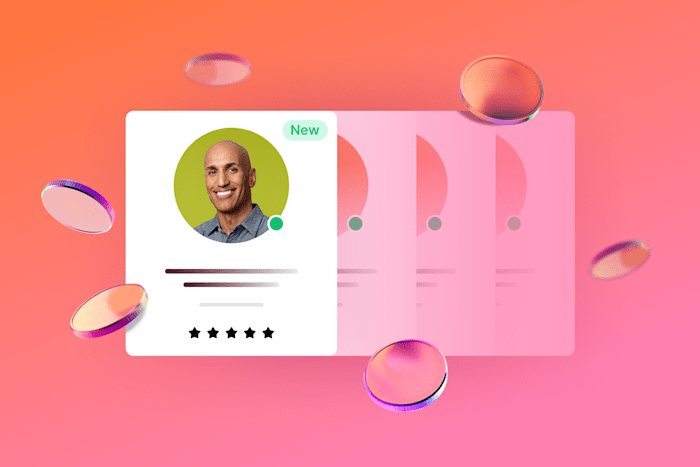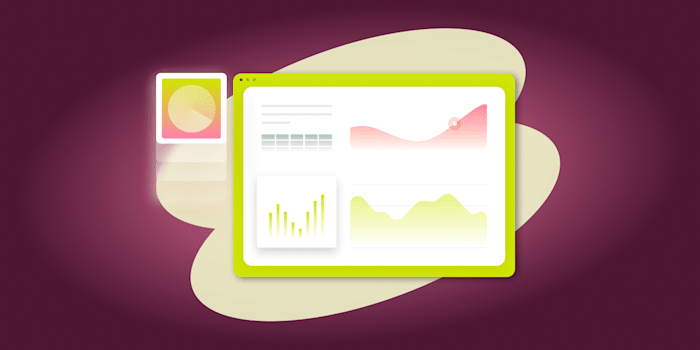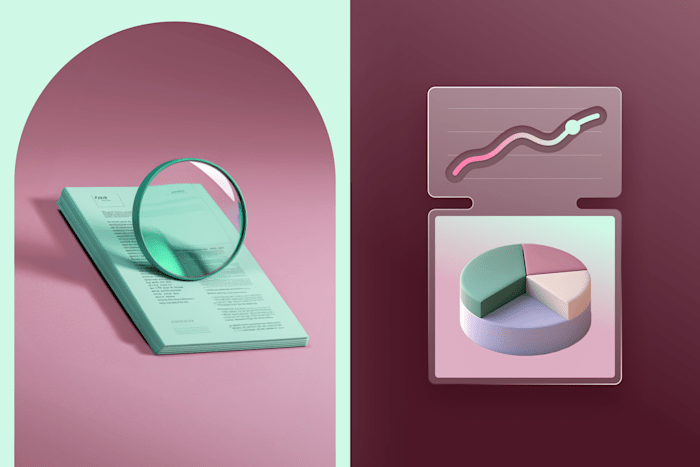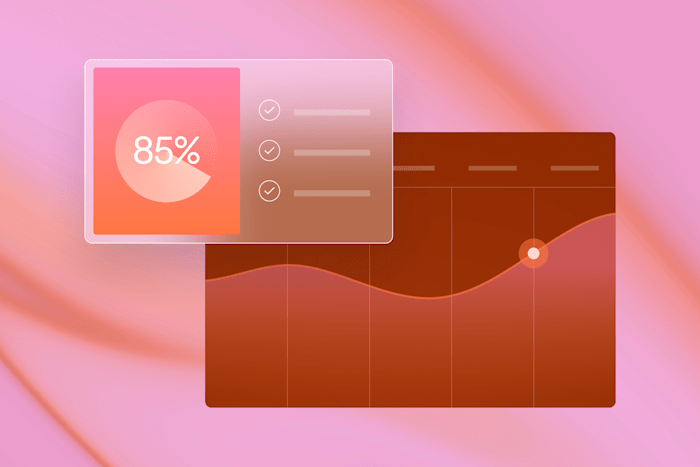What is A CRM Database? Benefits and Examples
Learn the core components of CRM databases and how they organize customer information.
 April 15, 2025
April 15, 2025 8 minute reading
8 minute reading
Building strong customer relationships is key to business growth, but keeping up with interactions, leads, and marketing efforts can quickly become overwhelming. That’s where the right Customer Relationship Management (CRM) tool makes all the difference.
But how do you get started? And what does effective CRM management look like? This guide covers everything you need to know—from understanding CRMs to using them effectively for your business.
What is a CRM database?
A CRM database is a tool for storing and managing customer information in one place. It keeps track of key details like purchase history, support interactions, emails, call records, and customer preferences.
With a CRM, businesses can manage customer relationships more efficiently. It helps teams track interactions, improve follow-ups, and provide better support by ensuring that anyone reaching out to a customer has the full context of their history.
CRM software also includes features for sales and marketing. Sales teams can make informed decisions, track progress through the sales cycle, and easily share insights with colleagues.
As more businesses move to cloud-based solutions, SaaS CRMs have become the standard, offering accessibility and flexibility for teams working from anywhere.
Three types of CRM, or only one?
There was a time when CRM systems were neatly categorized into three distinct types:
Analytical CRM: Designed for data analysis and forecasting to support business growth.
Collaborative CRM: Built to improve coordination and communication across teams.
Operational CRM: Focused on managing daily sales, marketing, and customer service tasks.
Although these terms are still widely used, it’s unlikely you’ll find a CRM solution anymore that fits neatly into these categories. Modern CRMs typically operate as unified platforms that offer all three types of CRM solutions in one.
With so much of the world’s workforce operating remotely, a CRM that lacks collaborative features is unlikely to become the right CRM for any company. Similarly, a CRM contains so much data about customer behavior and demographics that it would be foolish to omit a robust analytics feature inside an otherwise purely operational CRM.
However, CRM vendors sometimes limit some of these features until you opt for a higher-priced tier.
What’s in a CRM database?
There’s no limit to what kind of customer information you can store in your CRM system. The more data you have about your customers, the more easily your salespeople and marketing teams can do their jobs.
Sufficient data can also improve the customer experience because anyone communicating with that customer has the customer’s history available and can more directly address customer issues.
However, a fully-featured CRM platform isn’t only a data aggregator. It also provides reports and analytics to help in the decision-making process, regardless of whether you’re a large or small business.
Client information
At its core, all CRM database software contains basic information such as name, email address, phone number, and postal address, if applicable.
A good CRM will track every customer interaction with your business from their first contact through an ongoing service relationship. For example, if your CRM data includes customer social media profiles, you could track when a lead first interacted with one of your social media posts. You can also track which posts led to sales and use these aggregated metrics to improve your marketing efforts.
The best CRMs contain detailed information of all past interactions, including all messaging communications, purchases, and support requests.
Customer touch points
A CRM automatically logs each touchpoint, such as when the customer opens a marketing email, calls support, or buys something. This creates a timeline of the customer's journey with your business. Sales teams can see where prospects are in the buying cycle, while support teams can view past service issues. If either team wants to reach out, they have all the customer’s contact information.
All of the CRM data can be unified in a single dashboard, eliminating the need to switch between different systems. The data is accessible to all relevant team members, ensuring everyone has the same up-to-date information about each customer's status and history.
Find an Expert Data Development for Hire
Reporting and analytics
One of the primary benefits of a CRM database is the wealth of data it contains. You need excellent reporting and analytics tools to gain insight from that data.
Good CRMs contain robust reports and dashboards that can be customized according to your business needs. These reports provide insight into sales pipelines, forecasting, customer behavior, and marketing effectiveness.
It’s also possible to connect CRM data to an external data visualization tool to obtain more meaningful insights into the data.
If you need help creating advanced data visualizations for your CRM data, reach out and get data visualization expert services on Fiverr.
Analytics tools
A CRM system can provide predictive analytics by using historical data combined with real-time customer data. Sales teams can use these analytics to anticipate customer needs before a sales call, and marketing teams can use them to send the right marketing message at the right time.
The CRM will also show you metrics like conversion rate, sales cycle length, and revenue per customer that help in decision-making. The data is often displayed in a customizable dashboard.
If the CRM doesn’t provide the exact dashboard you need, you can check Fiverr’s data dashboard experts to set one up for you.
AI is becoming increasingly common in CRM systems. It can help with anything from automatically generating reports to identifying potential customers.
Marketing data
Marketing automation is one of the foundational features of a CRM. Through proper customer segmentation, you can plan marketing campaigns based on a segment’s interests or activity.
The degree of automation can become quite sophisticated, such as sending emails at the precise time a potential customer is most likely to open it and buy a product.
CRMs let marketers plan campaigns based on customer behavior, characteristics, historical activity, social media interactions, and real-time events. The CRM then keeps track of marketing messages, including the number of times a potential customer opened an email or clicked a link.
Documents and files
Some CRMs contain a document management system, although this is typically an additional feature for a CRM tool.
In a documents-enabled CRM, you can store Word documents, PDFs, and spreadsheets related to a customer so that it's easy to go back through that customer’s history. The documents might include past quotes, proposals, and contracts.
As part of the document storage feature, the CRM usually implements roles-based access so that only certain employees have access to sensitive documents. For example, salespeople might have access to sales contracts, whereas marketing employees might only have access to past emails.
You might need to customize your CRM or build a separate document management tool for sophisticated document management capabilities. You can get help from one of Fiverr’s freelancers who specialize in software development.
Find an Expert Data Visualization for Hire
How do CRM databases help businesses?
CRMs function as your business’s brain. They centralize customer contact management and form the hub of all core activities related to that lead or customer.
Here are some of the ways CRMs can specifically help your business:
Customer retention
Improved customer satisfaction equals better customer retention. A CRM can help you deliver personalized service to your customers.
According to a recent Salesforce survey, 65% of customers expect businesses to adapt to their changing needs. A CRM lets you monitor those changing needs.
The CRM can also automatically identify engagement patterns and adjust its marketing messages based on those patterns.
Develop and nurture customer relationships
CRMs centralize customer data to create comprehensive customer profiles. Sales teams can view a customer's journey from initial contact to multiple purchases. Support teams can view past customer support requests and then offer contextualized assistance.
The CRM logs all interactions, either automatically or through manual data entry, providing you with a full overview of the customer’s relationship with your business.
The CRM can also detect drop-offs in engagement, possibly triggering an outreach sequence to re-establish contact.
Improve sales and marketing campaigns
CRMs enable powerful, data-driven sales and marketing campaigns through precise targeting and personalization. Marketing teams can segment audiences based on customer behavior patterns and engagement levels.
For example, the marketing team might segment clients who consistently open product update emails and target them for beta-testing new features.
Increase customer engagement
A CRM monitors all customer and leads engagement across email, phone, social media, and website interactions, showing where customers prefer to communicate. CRMs can also identify optimal contact times based on interaction history.
When customers take specific actions, such as viewing a pricing page multiple times, the CRM can initiate sales follow-ups. It can also detect a rise in support tickets from specific customer segments, potentially triggering a targeted support workflow to improve service quality.
There is no end to the potential actions a CRM can offer. If your CRM doesn’t have all these capabilities, you can get them custom-programmed by a software development freelancer from Fiverr.
Find a database management specialist for hire
CRM database options
Dozens of powerful CRMs exist, both free and paid. These days, the majority of CRMs are cloud-based.
Salesforce CRM
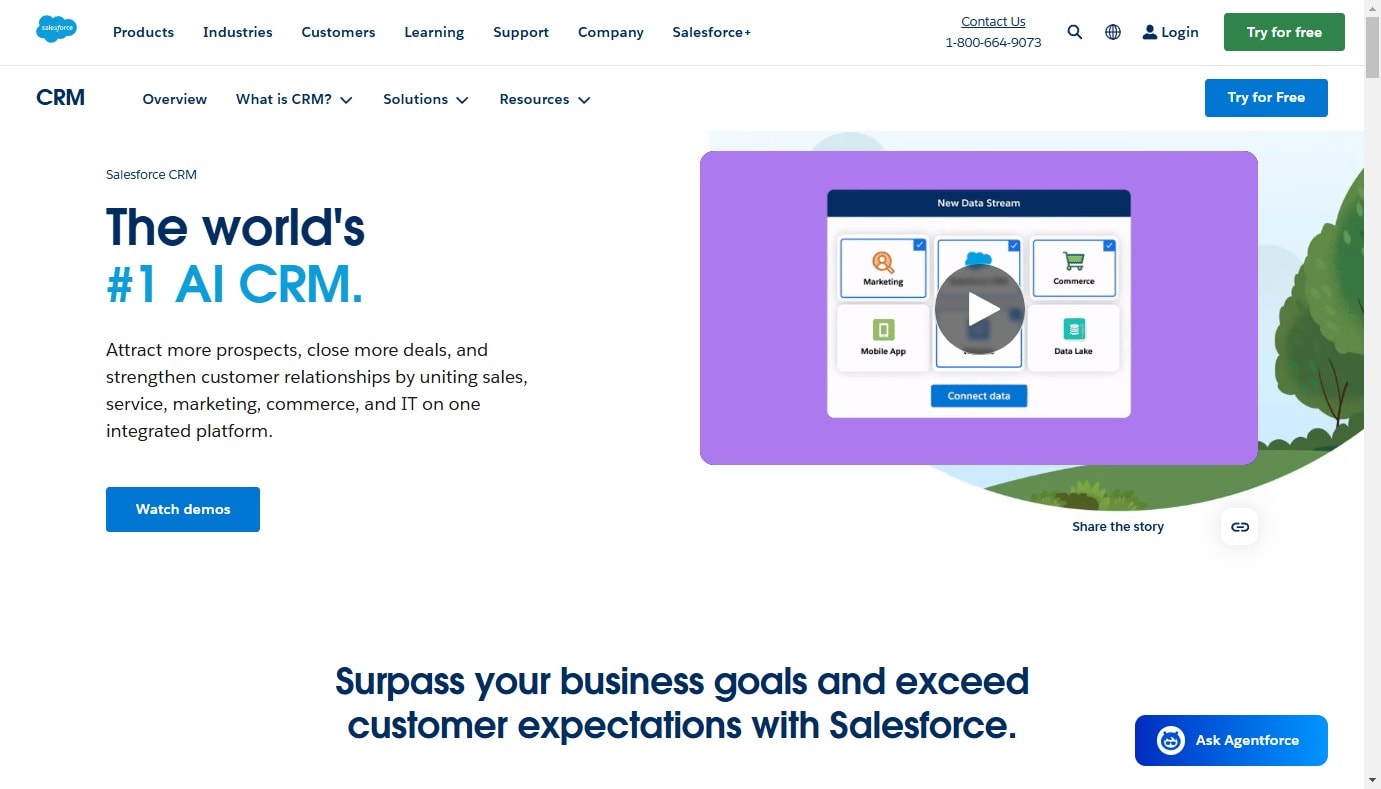
Salesforce
Salesforce CRM is a comprehensive customer relationship management platform that unifies sales, service, marketing, commerce, and IT operations. The system serves as a centralized hub for managing all customer interactions and data.
The platform uses AI to improve productivity and personalize customer experiences. It provides a single, shared view of customer data across departments. It’s also suited for businesses of all sizes.
Key features include AI-powered automation and predictive analytics, integrated team collaboration tools, customizable dashboards and reporting, and comprehensive contact management.
HubSpot CRM
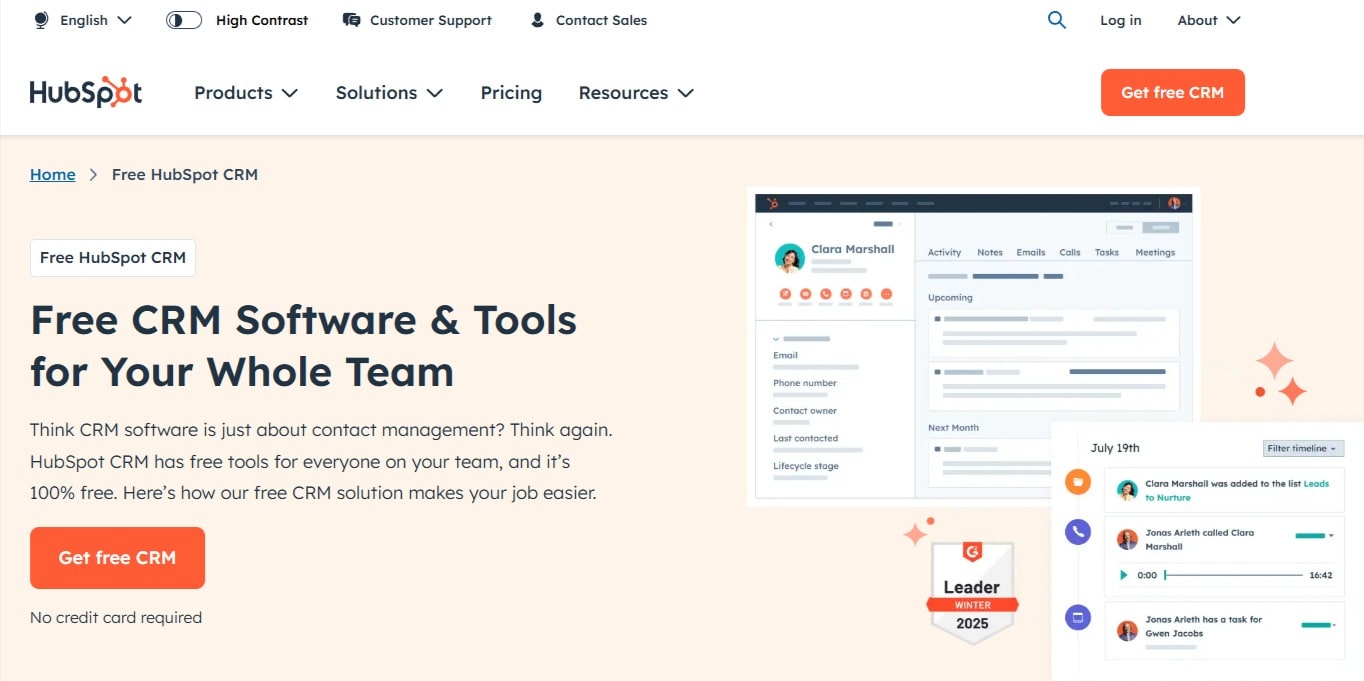
HubSpot
HubSpot CRM is a free CRM platform with a comprehensive visual dashboard that displays real-time sales pipeline data. The CRM also offers detailed activity reporting.
The free version includes unlimited data storage with up to 1,000 contacts and has tools that streamline the sales process. For example, the platform automatically notifies sales teams when prospects interact with emails or visit the website.
Its core functionality includes contact and deal management, email tracking with engagement notifications, document sharing, meeting scheduling, and sales quote creation.
For larger organizations, HubSpot offers an enterprise version of all the above items.
Pipedrive
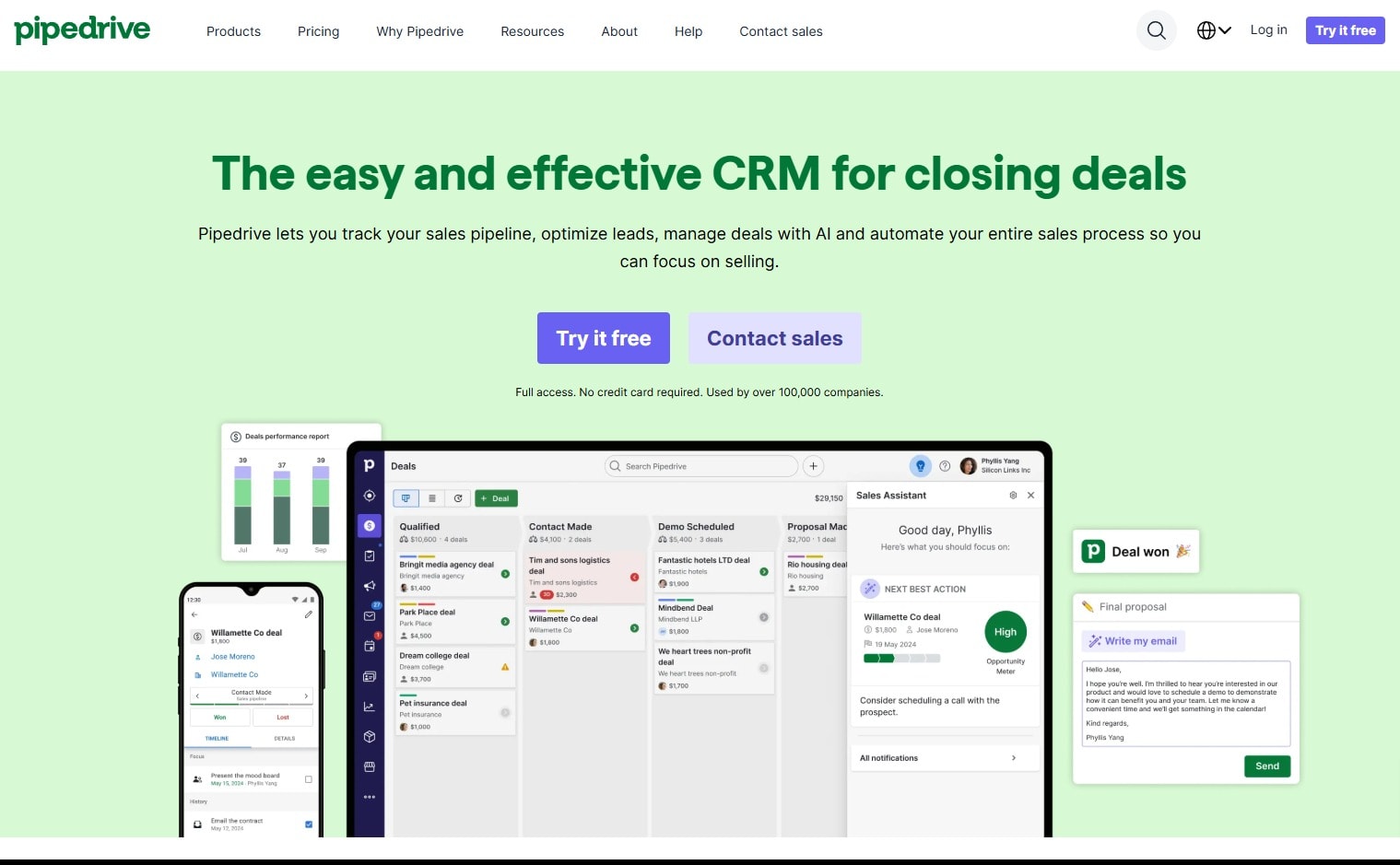
Pipedrive
Pipedrive is a CRM platform focused on sales pipeline management and deal closure. The system provides automated lead nurturing and AI-powered prompts to help sales teams focus on promising leads.
The platform features a Kanban-style dashboard for visualizing the sales funnel. “Kanban” is a scheduling system developed by Toyota for lean manufacturing.
Pipedrive includes real-time reporting features and AI suggestions for forecasting and goal-setting.
Less Annoying CRM
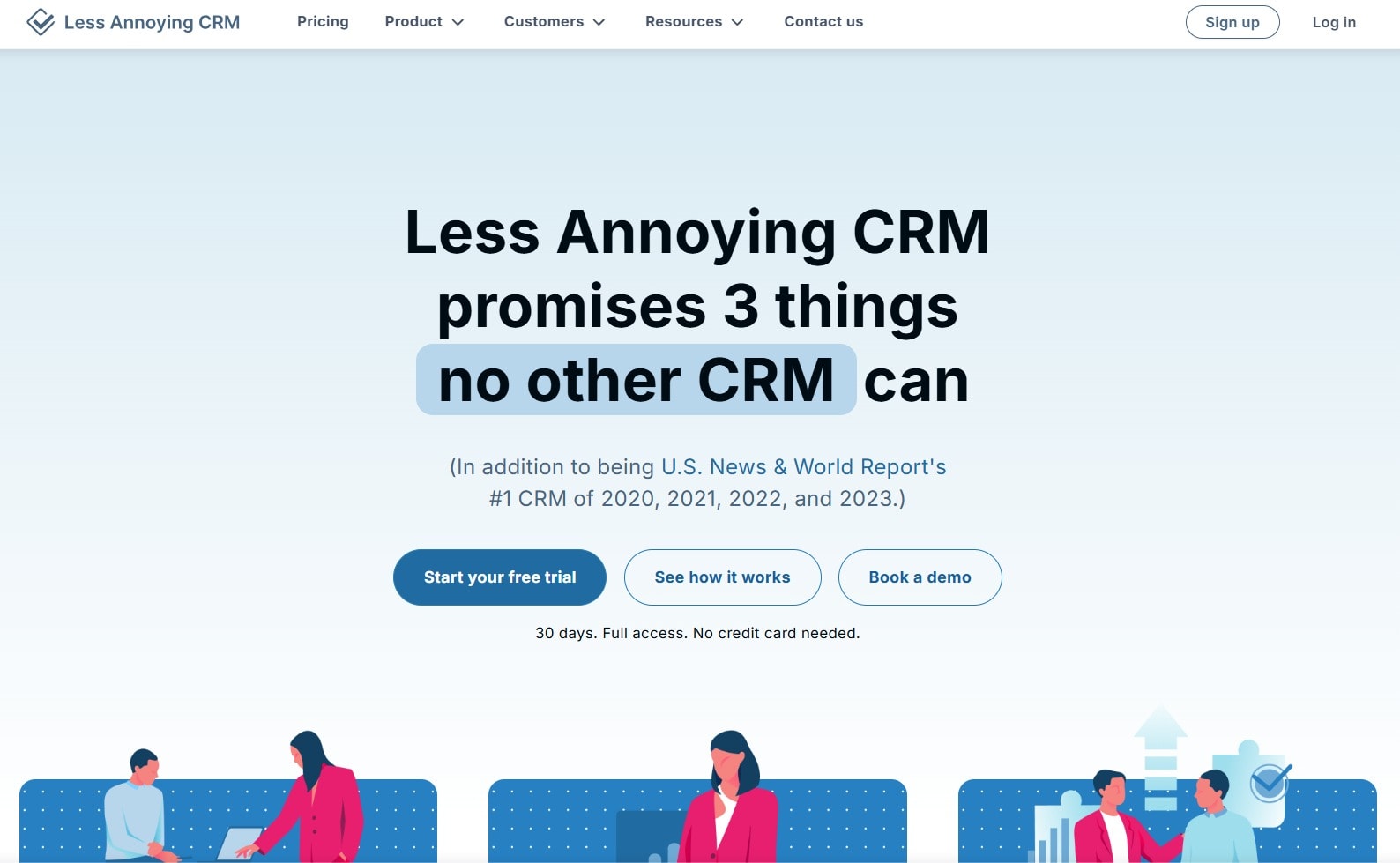
Less Annoying CRM
Less Annoying CRM (LACRM) is a small business-focused CRM platform that is entirely self-funded. Its main differentiator is that it emphasizes simplicity and affordability, with a single pricing tier and no hidden costs or forced upgrades.
It has all the core features small businesses need, such as lead tracking, task management, and calendar integration.
Less Annoying CRM focuses on ease of use. Businesses can start using the system immediately without consultants or complex setup processes. The service includes direct access to experienced customer support staff rather than chatbots.
The system integrates with common business tools like MailChimp, Google Calendar, Outlook Calendar, and Zapier. Unlike investor-backed competitors, Less Annoying CRM maintains its focus on small business needs rather than enterprise features. The average account has 2.5 users. It is currently ranked on G2 as the #1 easiest-to-use CRM for small businesses.
Find a data entry clerk for hire
Hire a CRM management service on Fiverr
Whether you’re developing a custom CRM or using an existing one, Fiverr has many expert CRM freelancers who can help you manage your CRM to get the most out of it.
For custom CRM development, you might need database consulting and full-stack development services, which Fiverr freelancers can provide. You can also get help from Fiverr freelancers to create professional dashboards and data visualizations.
Creating an account is free, so get started on Fiverr today to find the right CRM freelancer for your business.
CRM database FAQs
What are the three types of CRM?
Historically, people have separated CRM databases into three types: Analytical CRM, operational CRM, and collaborative CRM.
As CRMs have become more sophisticated and grown into fully-fledged SaaS (software-as-a-service) offerings, this distinction is becoming less meaningful. All modern CRMs typically include analytical, operational, and collaborative features.
However, it’s still common for CRM providers to offer more advanced operational, collaborative, or analytics features as a premium add-on.
Is Excel a CRM database?
Excel is a spreadsheet tool that lets you easily organize and analyze numerical data. Although Excel could be used as an extremely rudimentary contact management tool, it lacks even the most basic CRM functionality provided by cloud-based, fully-fledged CRMs.
What does CRM stand for?
CRM stands for a Customer Relationship Management database or platform, which is a platform to manage all of your leads and customer details.
Is CRM a SQL database?
CRMs are made up of a front-end (visual interface) and a back-end (database). The database used in the backend might be an SQL database such as MySQL or PostgreSQL, or it might be a no-SQL database such as Amazon SimpleDB or MongoDB.
